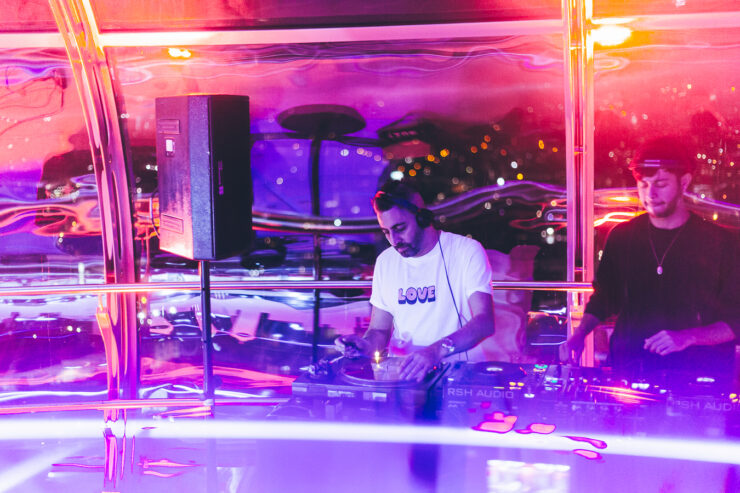Brighton Music Conference (BMC), renowned as the UK’s premier electronic music conference and networking event, looked set to be postponed when lockdown restrictions came into effect back in March. However, despite all the hurdles the organisers have had to jump through, the conference made a triumphant return to Brighton last week, switching to a virtual-only event with access made free-to-all, aimed at supporting those in the industry currently facing financial hardship and unable to generate revenue from live performance.
In a normal year, BMC is a buzzing hive of activity and discussion, with hundreds of stalls, DJ/producer workshops, tech demos and panel talks that take place in and around the Brighton Dome. It has long been a fixture on the Brighton calendar, now in its seventh year, and the conference focuses on “innovation, education and key issues facing the electronic dance music sector,” meaning there was plenty of relevant discussion across the numerous panels of the two-day event.
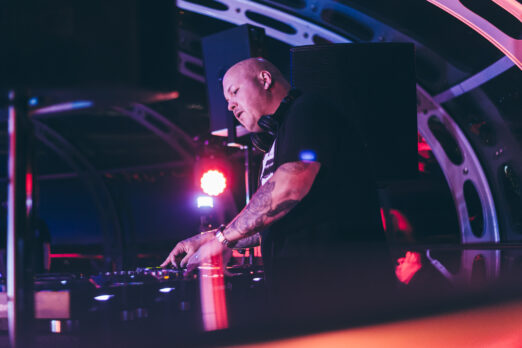
Alan Fitzpatrick © Matt Stephens // mattstephensphotography.com
BMC20 didn’t just offer meaty roundtable discussion however – the i360 played host to a number of banging live DJ sets from the likes of Alan Fitzpatrick, Darius Syrossian, East End Dubs and Faithless’ Sister Bliss, who all suitably got the party started throughout the conference evening programme. BMC also partnered with the #wemakeevents campaign on the Wednesday night which saw the iconic i360 light up in red in support of the thousands of event industry workers affected by COVID-19 restrictions.

Photograph © Matt Stephens // mattstephensphotography.com
Panel topics were suitably wide-ranging for such a pivotal moment for the music industry, taking in ‘Raving, Race & Responsibility’, ‘Strategies for Diversity & Inclusion’, ‘Mental Health & Wellbeing Post-Lockdown’ and the ‘Global Impact of Covid on the Dancefloor’. The conference also held informative Q&As with larger-than-life DJs Fatboy Slim, Carl Cox, Nicole Moudaber and Sister Bliss from legendary electronic outfit, Faithless.
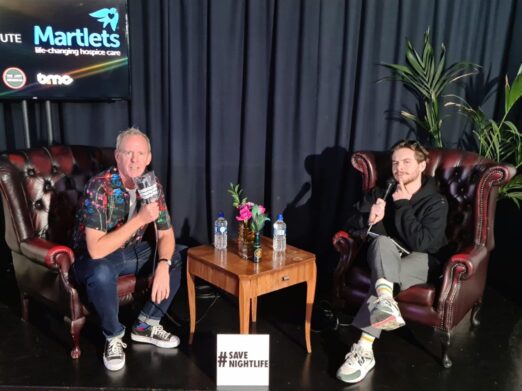
Fatboy Slim – Keynote Interview, presented by BIMM
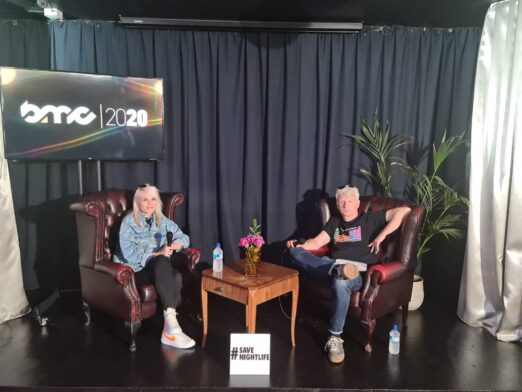
Sister Bliss (Faithless) – Keynote Q&A with Carl Loben (DJ Mag)
Carl Cox, a veteran of the dance music industry, kicked off the conference in combative mood during his keynote and all-out rejected recent ministerial claims that the scene was somehow “unviable” in the current climate, reiterating that partygoers have been fighting the authorities for their right to party for over 30 years and insisted that the Government would eventually see sense – “if the scene doesn’t come back, they’re going to lose billions… and governments don’t like to lose billions.” The “three-deck wizard” sent a positive message however, seeing the current situation as an opportunity for us to unite behind “the love of the party” and to bring the scene back, stronger than ever before.
The need for an industry “reset” was a common thread through each of the panels while measures aimed at diversity, inclusion and improving the experience of all within the industry were debated at length. The ‘Strategies for Diversity & Inclusion’ panel discussed the results of a recent survey of AIM, ADE and BMC attendees which highlighted that around 60% of female respondents had experienced some form of discrimination or harassment whilst working in the industry. Compared to that of male respondents – of which zero had reported the same experience – it made clear that much more work has to be done in terms of supporting women – and changing behaviours – at every level within electronic music to create a more secure and inclusive community.
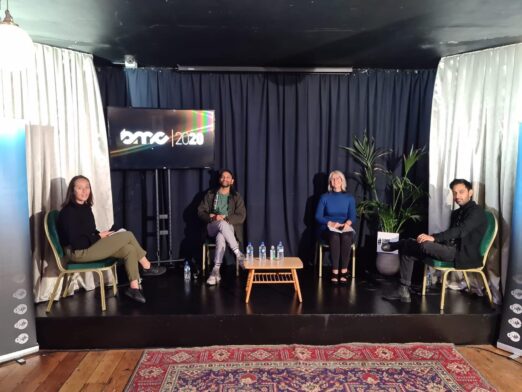
Strategies for Diversity & Inclusion in Electronic Music – Panel
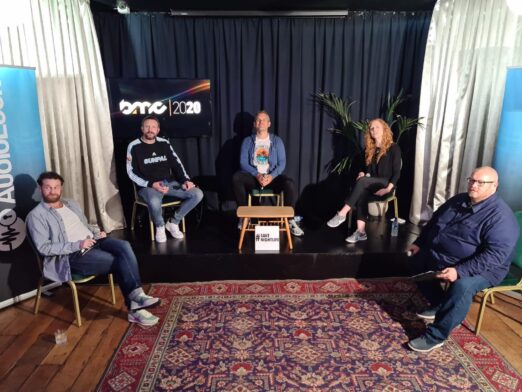
Global Impact of Covid on the Dancefloor – Panel
The impact of COVID-19 on the dancefloor is a colossal issue for all involved in the scene. A sector that generates billions and creates hundreds of thousands of jobs – not to mention the pure joy and freedom of dancing in a field or club with your mates – is currently under significant threat without Government financial support or guidelines for how venues, clubs and festivals can get back on track. Striving to create a positive message in extremely troubled times however, the panel suggested it was high time for the industry to treat this as a “ground zero” moment and to focus on more “homegrown, local” artists and events that would help to rebuild the scene with stronger foundations.
A whole host of industry legends were assembled to discuss ‘Black Representation in Dance Music’, including Mick Wilson (DJ Mag), Jaguar (Radio 1), Rowetta (Happy Mondays), Rob Davy (Mutiny) and DJ Paulette (Worldwide FM). The debate explored the representation of black performers within music today and where the industry can learn from past mistakes. Rowetta made a valid point on the notorious industry reflex of relegating prominent black singers to ‘backing singer’ status or failing to even credit performers’ work at all – a theme exposed in the critically-acclaimed 2013 documentary, 20 Feet From Stardom, and a long-disputed symptom of remix and sample culture.
There is a feeling amongst some in the industry that dance music has been taken over by wealthy, white fellas pushing commercialized ‘business techno’ to a post-EDM audience. But with such a rich black and LGBTQ+ heritage, has dance music really lost its way? We got some insight from legendary tastemaker and Essential Mix alumni, DJ Paulette during BMC20:
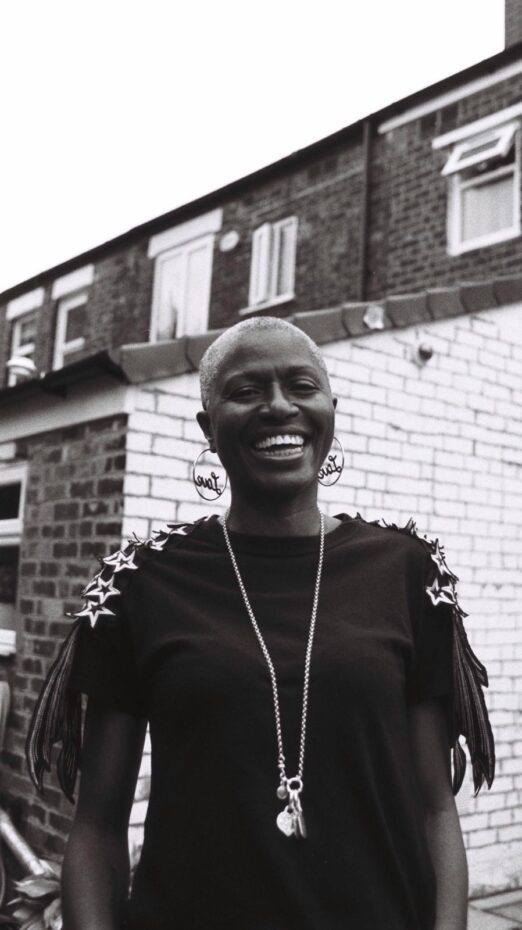
DJ Paulette
Hi Paulette! Thanks for making the time to speak with us. How have you been keeping busy during lockdown?
On a professional level, I have been learning software and getting to grips with DIY home production to create guerilla lockdown live streams for everyone from Boiler Room to Glitterbox, Rinse FM and a new monthly show for Worldwide FM. I’ve also picked up my political flag and have been waving it for various issues close to my heart – Black Lives Matter, LGBTQi, women’s rights and government support for the events industry.
How has the legacy of early pioneers Larry Levan (of legendary NYC Club, Paradise Garage) and Frankie Knuckles (Warehouse, Chicago) fared over the last 40 years? Is that inclusive culture still present in dance music in your view?
Their musical legacy and force is still strong – it’s definitely still strong with me anyway! There are so many DJs such as Gilles Peterson, DJ Harvey, Horse Meat Disco, Dimitri from Paris, Theo Parrish, Danny Krivit, John Morales, The Blessed Madonna, etc who are all still banging their tunes in their sets. Their music, voices, arrangements still sound fresh. Many are re-editing it or remixing it for the beat-heavy modern dancefloors so people like Todd Terje, Kon, Late Nite Tuff Guy, JKriv, Ron Basejam, Yam Who? are all flying that flag high. There is very much still a place for their music and I think there always will be because that’s the nature of a classic – longevity. We just have to make sure that the source gets the credit and it’s not passed off as someone else’s work when it resurfaces as a speeded up sample in a track in 2021.
You’re speaking alongside Rowetta from Happy Mondays at BMC20 and you were a resident at the Haçienda between 91-95 (!) – what memories do you have of that legendary era for dance music and rave culture? Favourite tune from the Haçienda?
I remember me wearing very little and that basement being a sweat box every month whenever I DJ’d. Serious fun. I recall going to the Southport Weekenders regularly – watching the Sounds of Blackness live, falling through the curtains on the stage behind Todd Terry as he played. I remember presenting a TV show called Juice and presenting the Manchester Festival programme on Granada with the legend, Anthony H Wilson.
Which artists are on your radar currently?
SAULT, Janelle Monae, James Blake, Voices of East Harlem, Moses Boyd, Sampha, The Chi-Lites, Cleo Sol, Khruangbin, Actress.
Great selection! Finally, we’re all itching for that first night back on the dancefloor – what is the first tune you’ll play to your adoring crowd?
Adeva – ‘Musical Freedom’!
All in all, BMC20 promised innovation and education – and this year’s conference surpassed all expectations, especially for a mid-pandemic event. Despite several changes to the line-up, BMC20 pushed on and created an informative, healthy discussion about how the industry can move forward while offering hope to artists, crew and event organisers for the future of their beloved scene.
Brighton Music Conference, Thursday 1st Oct – Friday 2nd Oct 2020
Photos by Charlie J Watts, Matt Stephens and Nic Serpell-Rand


